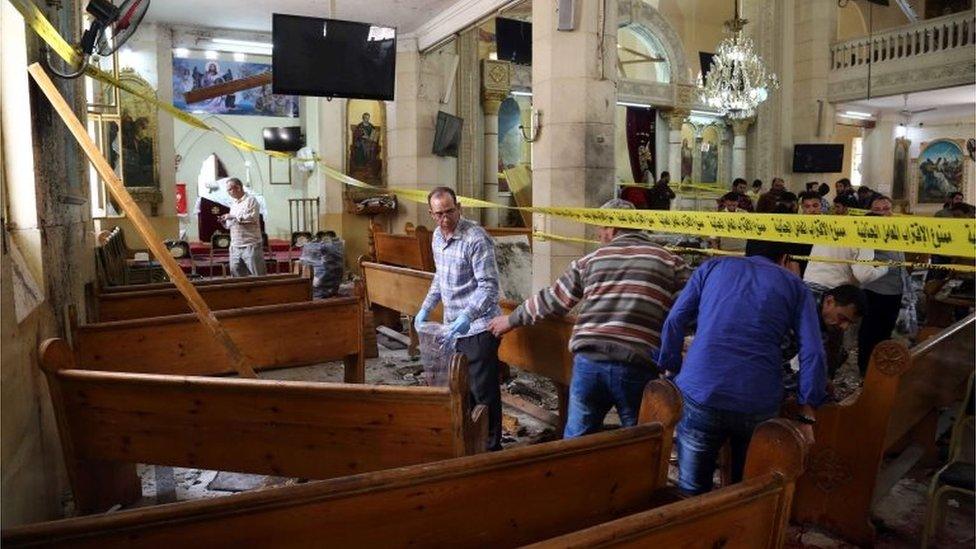Egypt Copt attacks: 'I feel so scared'
- Published

At least 44 people were killed in two bombings at churches on Palm Sunday
In the wake of a deadly double-bombing at Egyptian churches, Ishak Ibrahim, a Coptic Christian from the non-governmental Egyptian Initiative for Personal Rights, tells of a climate of fear among his community.
It feels so scary at the moment, the picture is very grim. If the Coptic Pope [Tawadros II, the head of the Egyptian Christian community who narrowly escaped the blast in Alexandria], has been targeted, how can Christians feel safe? The message sent out to Christians is that you are vulnerable wherever and whenever.
Christians in Sinai were forced to flee after militant threats there, although the peninsula has been living under a state of emergency for years. The state of emergency didn't protect them.
The regime [of President Abdul Fattah al-Sisi] is not pro-freedom of speech. So, it might only impose more restrictions and incriminate people who have nothing to do with the whole thing.
Christians in Egypt always feel they are second-class citizens. In some parts of the country, especially in the south, their houses have been set on fire and they have been beaten up by some Muslim neighbours.
It seems the state is unwilling to fix this issue. It is not just about lax security here, it is more about a culture of discrimination.
There is a view among Egyptians that the Coptic Church is siding with the state. The Church has paid a heavy price for such a stance. It is considered a supporter of the regime, and therefore is becoming a target for the militants' attacks.
Besides, whenever sectarian incidents take place, the Church issues statements which do not reflect how outraged Christians really are.
The frequency of these attacks is quite alarming. In the past, there was some sort of public resentment for attacking churches. But when they become frequent, people will just get used to it.
It won't be shocking any more. It might even encourage other radical Muslims to do the same.
Interview by Sally Nabil, ┤¾¤¾┤½├¢ Arabic
- Published9 April 2017
- Published16 February 2015
- Published25 February 2017
- Published2 January